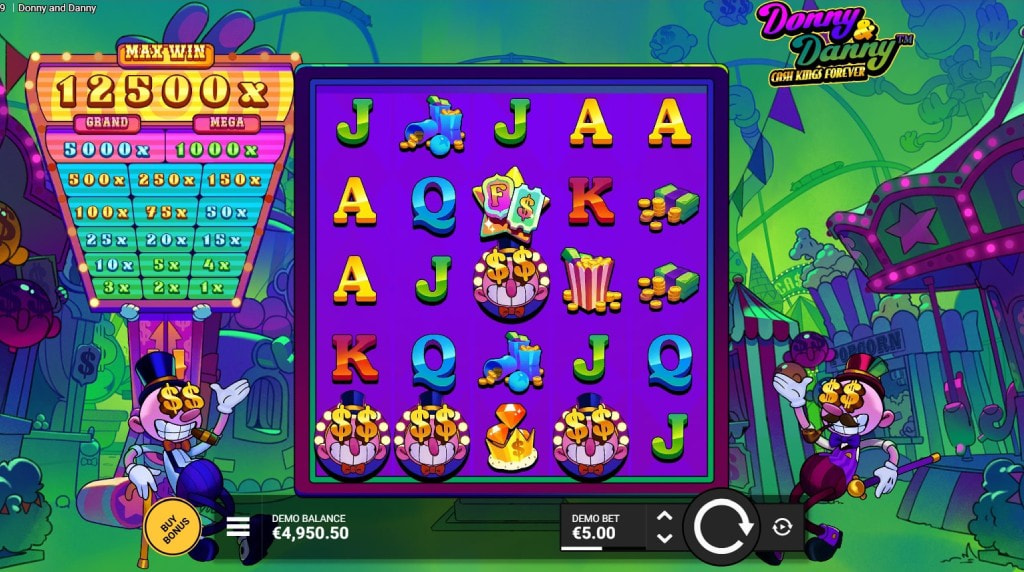The 68th Eurovision: Who Tops the Betting and Who Will Win?
The Eurovision Song Contest 2024 Grand Final will take place in the Malmö Arena on Saturday, May 11. Beforehand semi-finals, on Tuesday, May 7 and Thursday, May 9, will whittle 37 countries down to the final 26. Sweden won the right to host the competition as the defending champions and is fast-tracked directly into the final.
Sweden has won Eurovision seven times in the past. Online betting sites believe it is unlikely the nation will take the title for an eighth time in 2024. Bookmakers quote the Scandinavian nation on 40/1. Ireland, a country that matches Sweden’s record of seven wins, is 80/1. The UK, boasting just two top-10 finishes in the past 20 years, is quoted on 50/1.

Sweden’s Loreen and her team celebrate as the judges’ votes are announced during the 2023 Eurovision Song Contest. ©Louise Bennett/EBU.
With the acts and songs representing all 37 participating countries now official, bookmakers are already pitting their wits against the punters. Italy and Croatia have been heavily supported and are currently vying for favouritism. Here, we will explain the mechanics of the 68th Eurovision Song Contest and look at the chances and the countries currently residing in the top-six of the betting.
How Does the Eurovision Song Contest Work?
The first semi-final will take place on May 7 2024, when 15 countries will perform their songs, and the top ten will proceed to the final. The second semi-final is scheduled two days later and will feature 16 countries. Once again, the top ten will make the final.
The May 11 final will consist of twenty-six countries comprising the 20 qualifiers, the host country, Sweden, and the Big Five, which proceed directly to the final. They are: The UK, Italy, Germany, France, Spain. All six will perform during the semi-final shows, but the public cannot vote for them.
Voting on the semi-finals is restricted to televoters only. However, there are two sets of votes for the final show, one from juries (made up of music professionals) and the other from televoting. Points are awarded on the following basis: 12, 10, 8, 7, 6, 5, 4, 3, 2, 1. All awarded points are combined to determine the winner and finishing order.
Who Is Fancied for Eurovision Glory?
Italians gamble more money on Eurovision than any other nation. Fiercely patriotic, the weight of public support has seen the country feature at the top of the betting list since before it decided on its song! Never bigger than 10/1, Italy is currently priced on 9/2.
Ukraine is another country that bookmakers have kept short in their betting since markets began to appear. The cautious approach is understandable. Ukraine’s recent finishing positions read: 6-1-5-17-24-1-6-3. This year, the war-torn country is trading as fourth favourite on 7/1.
At the other end of the betting, Poland, San Marino, Portugal, Albania, Moldova, Serbia, Australia, Czech Republic and Luxembourg can all be backed at 400/1 and 500/1. While the competition occasionally falls to an underdog, there has yet to be an outrageously big-priced winner.
Croatia 10/3
Performing seventh in the opening semi-final, Croatia’s act is a 28-year-old male professionally known as Baby Lasagna. His song, ‘Rim Tim Tagi Dim’, is an expressive narrative depicting a young boy’s journey from Croatia in search of a brighter future in another country.
The track often sounds similar to last year’s Finnish entry, ‘Cha Cha Cha,’ which topped the televoters poll and finished the competition in second place. ‘Rim Tim Tagi Dim’ does have clap-along segments and a catchy chorus, arguably making it a better song than ‘Cha Cha Cha’ and explaining its position in the betting.
Switzerland 7/2
Switzerland has been a massive mover in the betting (8/1 into 7/2) since its representative, a rapper mononymously known as Nemo, performed in dress during a Spanish Eurovision pre-party over the Easter weekend.
His song, ‘The Code’ has plenty going on – it could easily be three songs poorly cut and pasted into one – and will appeal to the LGBT+ community, notorious for heavy voting in Eurovision. But, unlike Italy, it has to be questioned how much professional juries will rate it when it comes to voting time.
Italy 4/1
22-year-old Angelina Mango won Italy’s selection show, the Sanremo Music Festival, with ‘La Noia’. Her powerful performance there proved she lacks nothing in confidence. But interestingly, the victory was mainly determined by the vote of the accredited press, which overturned the preferences of the general voting audience.
In the televoting, the winner of Sanremo 2024, Mango, received only 16.1 percent of the votes – her chief rival, Geolier, was awarded 60 percent – but a jury of radio broadcasters and press members carried her through.
Since 2011, Italy has finished in the top-10 eight times. That is a strong form pointer, but can a 50/50 split of judges and public vote combine to take this one to Eurovision top spot in 2024?
Ukraine 7/1
A public sympathy vote won the Eurovision Song Contest for Ukraine in 2022. It was a year when the jury vote placed the country only third. Twelve months ago, Ukraine finished sixth despite being the 15th choice of the juries as televoters came good again.
It appears that 2024’s Ukrainian entry will have to depend on a solid vote from both juries and televoters to win the prize for a third time in seven years. Hopes lie with Alyona Alyona and Jerry Heil, who collaborate to perform ‘Teresa & Maria’. Can they do it? If you like two songs of different genres stapled into one, maybe you will believe they can!
Netherlands 7/1
Another rapper using a mononym for a name, Joost represents the Dutch with an eccentric song that is, like Switzerland, going to appeal to LGBT+ televoters. His Barbie-esq 90s electronic-style song, ‘Europapa’, has reached No.1 in its home country and Belgium.
However, it is not performed in English – limiting the vital sing-along factor – and is unlikely to float the boats of jury members. Consistently polling in the top four of televoter intentions, Holland is unlikely to repeat 2019’s success – its only victory since 1975.
Who Will Win Eurovision?
The problem with the Italian song is that you could listen to it 20 times and still have no idea what lyrics are coming next. A sing-along-song it is not. Nevertheless, the judges should be impressed with Angelina Mango’s voice, which could score well with them.
But our experts think Italy will bomb – and not for the first time. In 2016 and 2017, the country traded shorter than 2/1 and finished 16th and 6th. On both occasions, its song was performed in Italian, and traditionally, the preponderance of Eurovision-winning songs have been sung in English.
Croatia Strikes the Eurovision Balance Best
The key to this competition is identifying a country that will score well with both jury and phone voters. Last year, there was controversy after Sweden overcame Finland’s massive televoting lead to win courtesy of the judges.
Norway suffered from the same fate in 2019. Topping the televote, such was the jury’s dim view of its song and performance, the country finished a lowly seventh. Last year, Norway garnered 216 votes from the public – but only 52 points from the judges.
And so, when the dust settles, and the LGBT+ vote is divided out between its many candidates, we believe the country that will, at the very least, claim top-four finishes in both the jury and televote sections is Croatia. At the 7/2 odds offered by the best betting sites, the country appears to be a relatively safe each-way play.
 Nolimit City Preparing Das xBoot 2 for UK Slots Sites
Nolimit City Preparing Das xBoot 2 for UK Slots Sites
 Top Pro Mario Mosböck Launches a New Poker Channel on YouTube
Top Pro Mario Mosböck Launches a New Poker Channel on YouTube
 Will the 2026 Golden Globes Be a Favourites Playground?
Will the 2026 Golden Globes Be a Favourites Playground?
 Hacksaw’s Donny and Danny Slot Set for UK Online Casinos
Hacksaw’s Donny and Danny Slot Set for UK Online Casinos